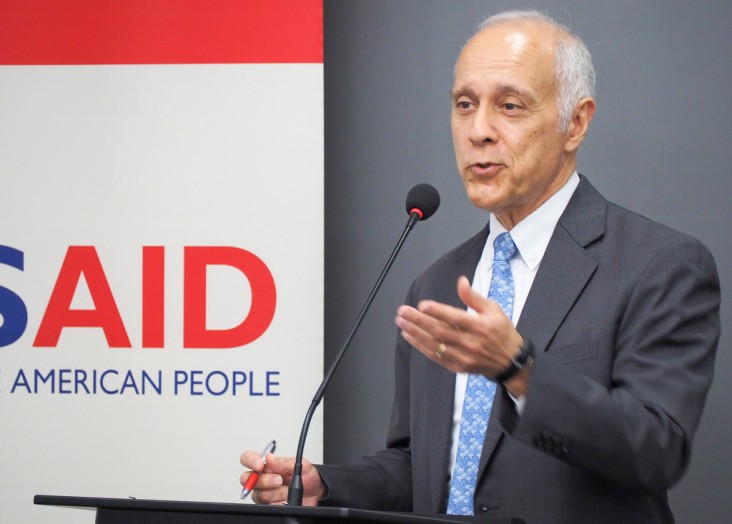
Good morning. Thank you all for coming together with us to have this very important discussion. And allow me to recognize the presence of Undersecretary Gil Beltran from the Department of Finance in the Philippines, with thanks for taking time out of your very busy schedule to attend this important event. Of course I would also like to thank Stephen O’Connell, USAID’s Chief Economist who is joining us from Washington DC, and so many other distinguished guests.
In his 2013 State of the Union speech, President Obama called for the United States Government to partner with others to eradicate extreme poverty by 2030.
And while USAID has been in the business of poverty reduction since we began in 1961, our sense of urgency is renewed. USAID’s new Mission Statement in fact starts out as follows: “We Partner to End Extreme Poverty.” And the pace of progress in the fight against poverty has been unprecedented, but the challenges have also been mounting. What it took to get the last billion people out of poverty will not necessarily work for the next billion.
As we know there’s been a growth explosion across the region, and the proportion of the Asian population living on or below the $1.25-a-day poverty line fell from 54 percent in 1990, to 22 percent in 2008 – a remarkable decline, with 700 million people lifted out of poverty.
However, that growth has been accompanied by rising inequality, in many areas.
And another important concern is the sustainability of that economic growth, including with respect to natural resources management and the environment. While many countries have made remarkable progress on economic growth, that growth has often been accompanied by increasingly serious high levels of air, soil and water pollution –and these can have serious impacts on health and quality of life, and on the engines of growth themselves.
USAID's Regional Development Mission for Asia (RDMA), like USAID missions around the world, is working to is address some of these poverty and food security challenges. As a regional platform, we are particularly focused on working with regional institutions on policy reform; building partnerships, and facilitating linkages with the private sector, education providers and civil society; and encouraging innovation that improves the lives of the poor. And along with the challenges, we also have powerful new tools and opportunities to address extreme poverty, including through the use of innovative science and technology – including mobile technologies.
Information sharing can take place like never before, and that can help accelerate progress. For example, as part of USAID’s Feed The Future program, USAID is working with a local institution, The Asian Institute of Technology, to link agricultural experts and technologies used in Thailand and India to help meet agricultural challenges in Nepal, Bangladesh, and Cambodia. We want the countries in Asia to learn from one another, much as we hope to learn from you all during this workshop.
USAID is also working with the Association of Southeast Nations (ASEAN) to promote more sustainable use and development of the region’s aquatic resources, with more than 37 million people work in fishing and aquaculture as their main livelihood and source of protein, with most of this population being poor farmers. Yet this resource is under threat.
We are therefore working with ASEAN to enable smallholder farmers to use more sustainable practices, and to meet the increasing environmental and social standards of global buyers.
And our work to help eliminate malaria and prevent outbreaks of pandemic diseases also helps the poor, including especially vulnerable and disadvantaged populations, such as migrant workers, who move freely across national borders. And we are helping communities to adapt more effectively to climate change – another variable that can have a major impact on global poverty.
But we realize we still have much to learn about how to most effectively combat poverty, and we know we will all be more effective if we learn from each other and find ways to link our efforts.
By the end of the conference, our hope is that we will all have a better sense of what extreme poverty eradication will require; how we will measure it, to better inform our decision-making; and what some of the best practices are to move us all forward.
We also hope that you may find new partners amongst your colleagues in the room, and that we’ll all continue to find ways that we can work together to achieve this most basic and important development goal.
Finally, I would like to sincerely thank UNCDF for partnering with us on this event, as well as the Asian Development Bank and the United Nations Development Program for their important contributions. And finally, I’d also like to thank RDMA’s Deputy Director, Carrie Thompson, for having conceived of this conference many months ago. Thank you all for your participation.
See more photos of the conference here: https://flic.kr/s/aHsk9YGzfo







Comment
Make a general inquiry or suggest an improvement.